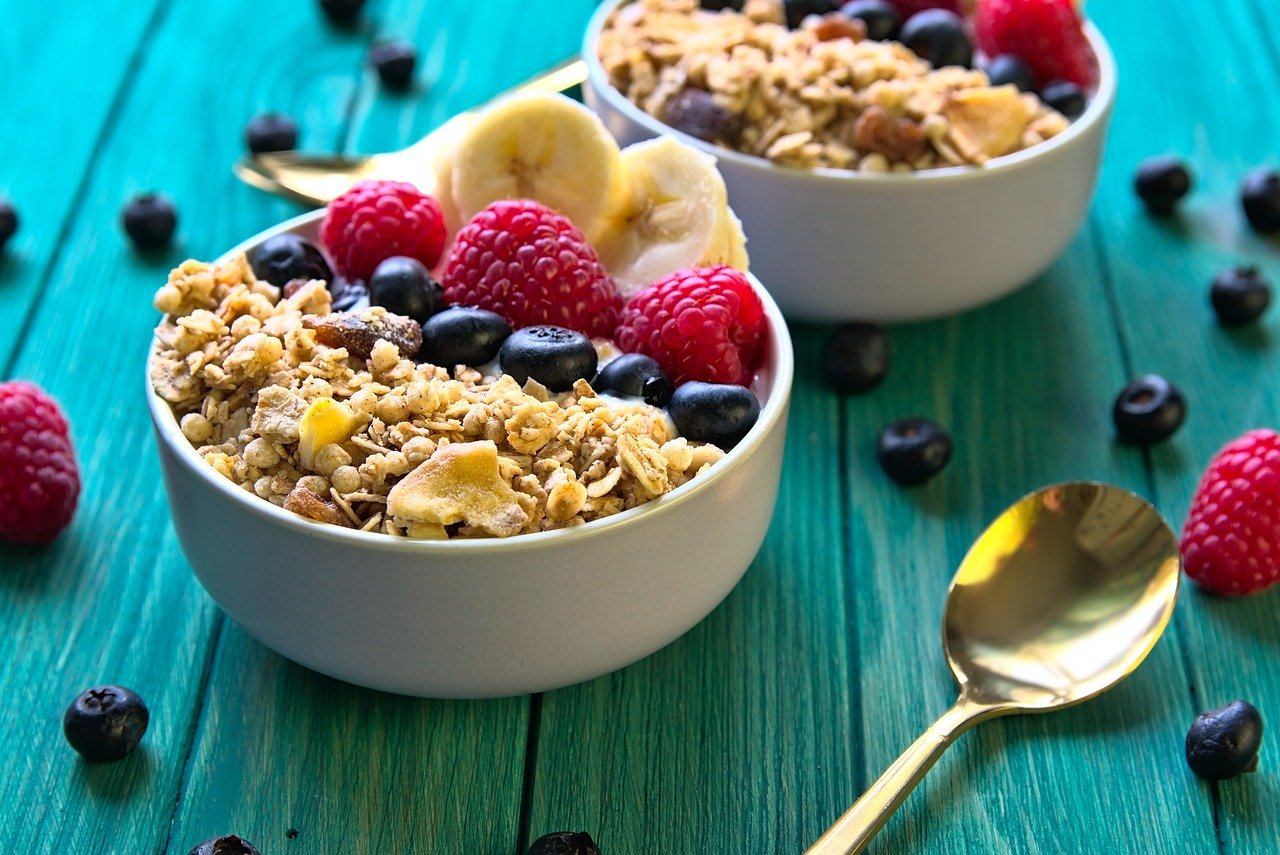When it comes to weight gain, many people often associate it with negative connotations. However, gaining weight can be a positive and healthy endeavor, especially for individuals who are underweight or looking to build muscle mass. Understanding the concept of healthy weight gain is the first step towards achieving your goals.
Healthy weight gain is about increasing your body weight in a way that promotes overall well-being. It involves gaining lean muscle mass rather than fat, which can be achieved through a balanced diet and regular exercise. It is important to note that healthy weight gain is a gradual process and should be approached with patience and consistency.
The Importance of a Balanced Diet for Healthy Weight Gain

A balanced diet is crucial for overall health, and it plays an essential role in healthy weight gain. Consuming a variety of nutrient-dense foods helps provide the necessary fuel for your body to build muscle and gain weight in a healthy manner. It is important to include all the major food groups in your diet, including carbohydrates, proteins, and fats.
Carbohydrates are the primary source of energy for your body. Including complex carbohydrates such as whole grains, fruits, and vegetables in your meals provides sustained energy and aids in healthy weight gain. Proteins are essential for muscle growth and repair. Incorporating lean sources of protein such as poultry, fish, beans, and legumes helps support muscle development.
Fats, although often misunderstood, are an important component of a balanced diet. Healthy fats like avocados, nuts, seeds, and olive oil provide essential fatty acids and help in nutrient absorption. Including a moderate amount of healthy fats in your diet can aid in healthy weight gain by providing additional calories.
Macronutrients and Their Role in Weight Gain
Macronutrients are the three main components of any diet: carbohydrates, proteins, and fats. Each macronutrient plays a crucial role in weight gain and overall health. Understanding their individual roles and incorporating them in the right proportions is vital for healthy weight gain.
Carbohydrates, as mentioned earlier, are the main source of energy for your body. They provide the fuel needed for physical activities and muscle growth. Including complex carbohydrates like whole grains, vegetables, and fruits in your diet ensures a steady supply of energy throughout the day.
Proteins are the building blocks of muscles. They help repair and build muscle tissues, which ultimately leads to healthy weight gain. Including lean sources of protein in your meals such as chicken, fish, tofu, and legumes ensures an adequate intake of this essential macronutrient.
Fats, contrary to popular belief, are essential for overall health and weight gain. They provide a concentrated source of energy and aid in the absorption of fat-soluble vitamins. Incorporating healthy fats such as avocados, nuts, seeds, and olive oil in your diet can help increase your calorie intake and promote healthy weight gain.
Incorporating Healthy Fats into Your Diet
Healthy fats are an important component of a balanced diet and are essential for healthy weight gain. Including a variety of healthy fats in your meals can help increase your calorie intake and provide other health benefits. Here are some ways to incorporate healthy fats into your diet:
- Avocados: Add sliced avocados to salads, sandwiches, or blend them into smoothies for a creamy and nutritious addition to your meal.
- Nuts and Seeds: Snack on a handful of almonds, walnuts, or pumpkin seeds for a quick and calorie-dense snack. You can also sprinkle them on top of salads or add them to your morning oatmeal.
- Olive Oil: Use olive oil as a dressing for salads or drizzle it over roasted vegetables for a flavorful and healthy fat boost.
- Nut Butters: Spread almond or peanut butter on whole-grain bread or use them as a dip for fruits and vegetables. They are not only delicious but also a great source of healthy fats.
By incorporating these healthy fats into your diet, you can increase your calorie intake in a nutritious way and support healthy weight gain.
Building Muscle Through Strength Training
Strength training is an integral part of healthy weight gain, as it helps build muscle mass and increase overall body weight. Engaging in regular strength training exercises stimulates muscle growth and enhances muscle strength. Here are a few key points to consider when incorporating strength training into your routine:
- Start with Compound Exercises: Compound exercises target multiple muscle groups at once, maximizing the efficiency of your workouts. Squats, deadlifts, bench presses, and pull-ups are excellent examples of compound exercises.
- Progressive Overload: Gradually increase the intensity of your workouts by adding more weight or repetitions. This progressive overload stimulates muscle growth and ensures consistent progress.
- Rest and Recovery: Allow your muscles to recover and grow by incorporating rest days into your routine. Overtraining can hinder muscle growth and increase the risk of injury.
- Seek Professional Guidance: If you’re new to strength training, consider working with a certified personal trainer who can design a workout plan tailored to your specific goals and needs.
Remember, consistency is key when it comes to strength training. Aim for at least two to three strength training sessions per week to see significant progress in muscle growth and healthy weight gain.
Creating a Calorie Surplus for Weight Gain
To gain weight in a healthy manner, you need to create a calorie surplus. This means consuming more calories than your body burns on a daily basis. However, it’s important to note that the calorie surplus should come from nutrient-dense foods rather than empty calories.
Calculating your daily calorie needs using a calorie calculator can give you a rough estimate of how many calories you should consume to gain weight. Aim for a modest calorie surplus of 250-500 calories per day to avoid excessive fat gain.
To achieve a calorie surplus, consider the following tips:
- Eat Frequent Meals: Instead of three large meals, opt for five to six smaller meals throughout the day. This helps increase your calorie intake without feeling overly full.
- Snack Smartly: Incorporate calorie-dense snacks such as protein bars, nuts, and dried fruits in between meals to boost your overall calorie intake.
- Increase Portion Sizes: Gradually increase the portion sizes of your meals to consume more calories. Include a variety of nutrient-dense foods from each food group to ensure a balanced diet.
- Healthy Calorie Boosters: Add healthy calorie boosters to your meals, such as olive oil, avocado, and nut butter. These additions increase the calorie content of your meals without compromising nutrition.
By creating a calorie surplus through a balanced and nutrient-dense diet, you can promote healthy weight gain while providing your body with the necessary nutrients it needs to thrive.
Healthy Weight Gain Meal Plan Ideas
Planning your meals in advance can help ensure that you’re consuming a balanced diet and meeting your calorie goals for healthy weight gain. Here are some meal plan ideas to get you started:
Breakfast:
- Veggie omelette with whole-grain toast and avocado slices
- Greek yogurt topped with mixed berries and a sprinkle of granola
- Overnight oats made with rolled oats, almond milk, chia seeds, and topped with nuts and fruits
Lunch:
- Grilled chicken or tofu salad with mixed greens, cherry tomatoes, cucumbers, and a drizzle of olive oil and lemon dressing
- Quinoa and black bean salad with roasted vegetables and a side of avocado slices
- Whole-grain wrap filled with lean protein (turkey, chicken, or beans), mixed vegetables, and hummus
Snacks:
- Apple slices with almond butter
- Greek yogurt with a handful of nuts and seeds
- Carrot sticks with hummus
Dinner:
- Baked salmon or tempeh with roasted sweet potatoes and steamed broccoli
- Lean beef or lentil stir-fry with mixed vegetables and brown rice
- Chickpea curry with quinoa or whole-grain naan
Dessert:
- Greek yogurt parfait with layers of mixed berries and granola
- Dark chocolate squares with a handful of almonds
Remember to customize these meal ideas based on your dietary preferences and calorie goals. The key is to include a variety of nutrient-dense foods from each food group to support healthy weight gain.
Incorporating Nutrient-Dense Foods into Your Diet
Incorporating nutrient-dense foods is essential for healthy weight gain, as they provide a wide range of vitamins, minerals, and antioxidants. Here are some nutrient-dense foods to include in your diet:
- Fruits and Vegetables: Aim for a variety of colorful fruits and vegetables to maximize your intake of essential vitamins and minerals. Berries, leafy greens, citrus fruits, and cruciferous vegetables like broccoli and cauliflower are excellent choices.
- Whole Grains: Opt for whole grains such as brown rice, quinoa, oats, and whole-grain bread. They provide fiber, complex carbohydrates, and essential nutrients.
- Lean Proteins: Choose lean sources of protein such as chicken, turkey, fish, tofu, and legumes. These protein sources are low in saturated fats and provide essential amino acids for muscle growth.
- Dairy or Dairy Alternatives: Incorporate dairy products like Greek yogurt, cottage cheese, or milk, or opt for dairy alternatives like almond milk or soy milk. These provide calcium and protein for overall health.
- Healthy Fats: Include healthy fats like avocados, nuts, seeds, and olive oil in your diet. These fats provide essential fatty acids and promote healthy weight gain.
By incorporating nutrient-dense foods into your diet, you ensure that your body receives the necessary nutrients for healthy weight gain and overall well-being.
Avoiding Unhealthy Weight Gain Methods
While the goal is to gain weight in a healthy manner, it is important to avoid unhealthy weight gain methods that can have adverse effects on your health. Here are some practices to avoid:
- Relying on Processed Foods: Processed foods are often high in unhealthy fats, sodium, and added sugars. They provide empty calories and lack essential nutrients. Instead, focus on whole, nutrient-dense foods.
- Overconsumption of Sweets and Sugary Drinks: Sugary snacks, desserts, and beverages can contribute to excessive weight gain and increase the risk of chronic diseases. Limit your intake of these foods and choose healthier alternatives.
- Skipping Meals: Skipping meals can lead to inadequate nutrient intake and hinder healthy weight gain. Aim to eat regular meals and snacks throughout the day to meet your calorie goals.
- Excessive Junk Food Consumption: While occasional indulgence is acceptable, relying heavily on junk food can lead to unhealthy weight gain and nutrient deficiencies. Opt for nutrient-dense foods instead.
- Overreliance on Supplements: While supplements can be beneficial in certain cases, it is best to obtain nutrients from whole foods whenever possible. Consult a healthcare professional before relying heavily on supplements.
By avoiding these unhealthy weight gain methods, you can ensure that your weight gain journey is both safe and beneficial for your overall health.
Conclusion
Gaining weight in a healthy manner requires a balanced approach that includes a nutrient-dense diet and regular exercise. Understanding the importance of macronutrients, incorporating healthy fats, and building muscle through strength training are key factors in achieving healthy weight gain.
Creating a calorie surplus through a balanced diet and incorporating nutrient-dense foods ensures that your body receives the necessary fuel for healthy weight gain. Avoiding unhealthy weight gain methods and focusing on whole, minimally processed foods is vital for long-term success.
Remember, healthy weight gain is a gradual process that requires patience, consistency, and a holistic approach to overall well-being. By following these guidelines and customizing them to fit your specific needs, you can achieve your weight-gain goals in a sustainable and healthy way.






